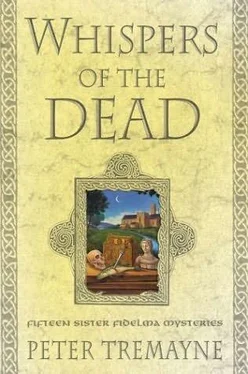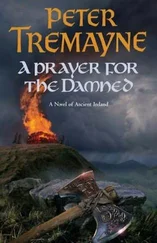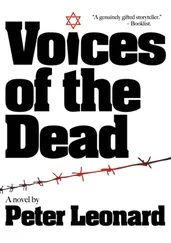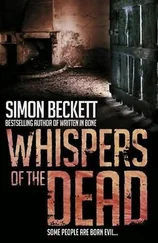Peter Tremayne - Whispers of the Dead
Здесь есть возможность читать онлайн «Peter Tremayne - Whispers of the Dead» весь текст электронной книги совершенно бесплатно (целиком полную версию без сокращений). В некоторых случаях можно слушать аудио, скачать через торрент в формате fb2 и присутствует краткое содержание. Жанр: Исторический детектив, на английском языке. Описание произведения, (предисловие) а так же отзывы посетителей доступны на портале библиотеки ЛибКат.
- Название:Whispers of the Dead
- Автор:
- Жанр:
- Год:неизвестен
- ISBN:нет данных
- Рейтинг книги:4 / 5. Голосов: 1
-
Избранное:Добавить в избранное
- Отзывы:
-
Ваша оценка:
- 80
- 1
- 2
- 3
- 4
- 5
Whispers of the Dead: краткое содержание, описание и аннотация
Предлагаем к чтению аннотацию, описание, краткое содержание или предисловие (зависит от того, что написал сам автор книги «Whispers of the Dead»). Если вы не нашли необходимую информацию о книге — напишите в комментариях, мы постараемся отыскать её.
Whispers of the Dead — читать онлайн бесплатно полную книгу (весь текст) целиком
Ниже представлен текст книги, разбитый по страницам. Система сохранения места последней прочитанной страницы, позволяет с удобством читать онлайн бесплатно книгу «Whispers of the Dead», без необходимости каждый раз заново искать на чём Вы остановились. Поставьте закладку, и сможете в любой момент перейти на страницу, на которой закончили чтение.
Интервал:
Закладка:
Fidelma did not need to be reminded that she was late for her examination with Brehon Morann of Tara. The examination was one of several she was taking which, she hoped, would result in her achieving the degree of Dos and thus ending her fourth year of study at the college of which Morann was Principal. The degree of Dos, so called because the student was regarded as a young tree ready to develop-for such was the literal meaning of the word-marked the start of her graduation from the school of law studies. It was the lowest rung of the graduate ladder. With such a degree one could go forth and practice as a minor magistrate or legal advisor. Fidelma had a higher ambition than that. But if she did not present herself within the appointed hour she would not be graduating at all.
The Brehon Morann sat at his desk, alone in his study, as Fidelma obeyed his gruff instruction to enter after she had timidly tapped upon his door. He was an elderly man with a kindly face but whose features could mold into a look of stern disapproval within a moment. He wore such an expression now.
“Well, Fidelma,” he said softly, as she came breathlessly to stand before him, “is it not said that judges begin to count the faults of those who keep them waiting?”
Fidelma colored in annoyance.
“Fer-leginn,” she addressed him by his official title of “Principal,” “It is not my fault that I. .”
She saw him begin to scowl and her mouth snapped shut.
“They are truly good who are faultless,” sighed Brehon Morann. His face was still somber but his twinkling bright eyes regarded her for a moment. She swore that he was laughing at her. “What were you saying, Fidelma?”
She shook her head.
“I am sorry for my lateness.” She tried to sound contrite. It was no use explaining that for some inexplicable reason the key had been turned in the lock of her door from the outside and it had taken her some time to attract attention and extricate herself from her room. She realized that it was no use explaining her lateness for this examination. She harbored ill thoughts against the student who would have played such a silly and petty trick on her. That they did it this morning of all mornings, when she was due for her examination, increased her thoughts of vengeance on the perpetrator. Morann had doubtless heard many excuses from students over the years and, even though her excuse was, in fact, a reason, any attempted explanation would not enhance her image in the eyes of her venerable examiner.
“Then I accept your contrition,” replied the Brehon solemnly, sitting back and placing his fingertips against one another, hand to hand, so that the tips of the thumbs touched just under his chin. “Sit down.”
Fidelma sat down, feeling hard done by.
“Tell me what you know of The Blemish?”
Brehon Morann asked the question without preamble and for a second Fidelma had to compose her thoughts.
“The Blemish? You mean, what is a blemish in legal terms?” she countered, playing for time.
Again, the frown of annoyance crossed Brehon Morann’s brow.
“You are in a college for the study of law,” he pointed out dryly, leaving her to make her own deduction.
Fidelma began to speak, hoping as she did so that the information would come to her mind.
“The law text Uraicecht Becc opens with the sentence that our system of law is founded on truth, right and nature. A judge must give a surety of five ounces of silver that the judgment they give is truthful to the best of the knowledge provided to them. They forfeit that sum if an appeal against their judgment is upheld. If it is found that they have made an erroneous judgment when the facts presented to them are clear then they are fined one cumal. ”
“Are you saying that honest error is not allowed in law?” snapped Morann.
“It is allowed for-isn’t there a saying which is ‘to every judge an error’? But a judge must pay for his errors if that error is obvious, and if the error arises from bias then it is said that a blemish will raise itself on his face. A serious false judgment will result in the judge being deprived of his office and his honor.”
Brehon Morann nodded slowly. He ignored the expression of triumph that crossed Fidelma’s face as she finally arrived at the answer to his initial question on “The Blemish.”
“And this blemish-how would you describe its physical manifestation?” He smiled softly.
Fidelma hesitated for a moment and then decided that she would put forward her own concept.
“When the ancients talked about a blemish being raised, I do not think that they meant it to be taken literally.”
Brehon Morann’s brows drew together sternly.
“Ah, so you are an interpreter of the meaning of the ancient texts?”
Fidelma’s chin came up at his tone of mockery.
“I make no such pretension although, surely, it is the task of the Brehon to elucidate the texts? I believe that what is meant by this reference to a blemish is that the loss of a judge’s honor and the fact that he becomes known in public as someone who has delivered a false judgment puts a blemish on his character in the minds of the people; the blemish is in the mind, not physically on the skin.”
“Indeed?” Brehon Morann’s voice was dry and non-committal.
Brehon Morann leant forward and picked up a small silver handbell. As its tinkling tones died away the door opened and a short, wiry man with an abundance of white curly hair entered. He closed the door behind him and made his way to a chair at the side of Morann’s table facing Fidelma. His face bore no expression at all. His features were bland.
“This is the Druimcli Firbis of Ardagh. He will set a case before you and you will tell me if and why a blemish should have been raised on the judge involved in the case.”
Fidelma stirred nervously in her chair. A Druimcli was a person who had mastered the entire course of learning, and was not merely a Brehon but could be appointed to the most important legal positions. She turned slightly to face him.
Firbis’s tone was high-pitched and querulous and he had a habit of sniffing every so often as if in disapproval.
“Pay attention and do not make any notes. I do not approve of the writing of notes as a means to aid the memory. In the old days, before the coming of the New Faith, the writing of our wealth of knowledge was not allowed. The old religion forbade us to commit our teachings to writing and it is a good rule for pupils who rely on the written word and neglect to train their memories. When pupils have the help of notes, they are less diligent in learning by heart and so their memories rust. Is that not so, young woman?”
The abruptness of the question startled Fidelma for a moment.
“It is an argument that I have heard, Druimcli, ” she acknowledged, solemnly.
The corners of Firbis’s mouth turned down.
“But you do not agree?” He spoke sharply, his eyes perceptive.
“Our ancestors failed to record many essential matters before the coming of the New Faith and the result is that much has been lost to posterity. Philosophy, religion, history, poetry. . these things went unrecorded. Because of this refusal to set forth all knowledge in writing, have we not lost much that would be most valuable to our civilization?”
Firbis stared at her in disapproval and sniffed.
“I suppose that you are one of the young generation who applauds the work of those scribes in the foundations of the New Faith who spend their time setting forth such matters in the new Latin alphabet?”
Fidelma inclined her head.
“Of course. How will future generations know the poetry, the law, the ancient stories and the course of our history unless it is set forth? I would only make this criticism, that such scribes feel constrained to dress many of the ancient stories of the old gods and goddesses in the images of the New Faith.” Fidelma suddenly felt herself warming to the theme. “Why, I have even seen one text in which the scribe tells how the hero Cú Chulainn is conjured out of Hell by the Blessed Patrick to help him convert the High King Laoghaire to the New Faith and when Laoghaire becomes a Christian Cú Chulainn is released from Hell to go to Heaven.”
Читать дальшеИнтервал:
Закладка:
Похожие книги на «Whispers of the Dead»
Представляем Вашему вниманию похожие книги на «Whispers of the Dead» списком для выбора. Мы отобрали схожую по названию и смыслу литературу в надежде предоставить читателям больше вариантов отыскать новые, интересные, ещё непрочитанные произведения.
Обсуждение, отзывы о книге «Whispers of the Dead» и просто собственные мнения читателей. Оставьте ваши комментарии, напишите, что Вы думаете о произведении, его смысле или главных героях. Укажите что конкретно понравилось, а что нет, и почему Вы так считаете.












